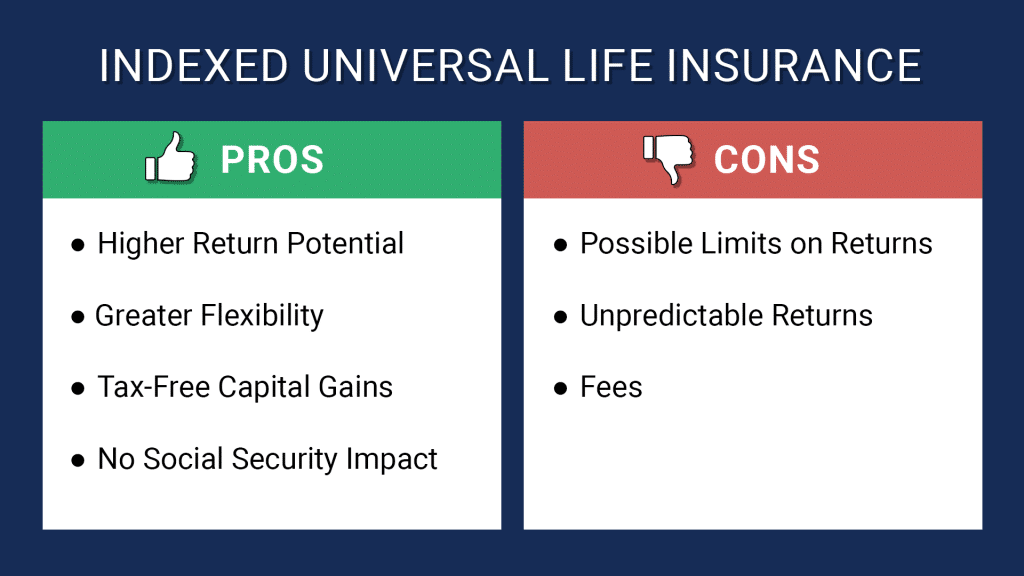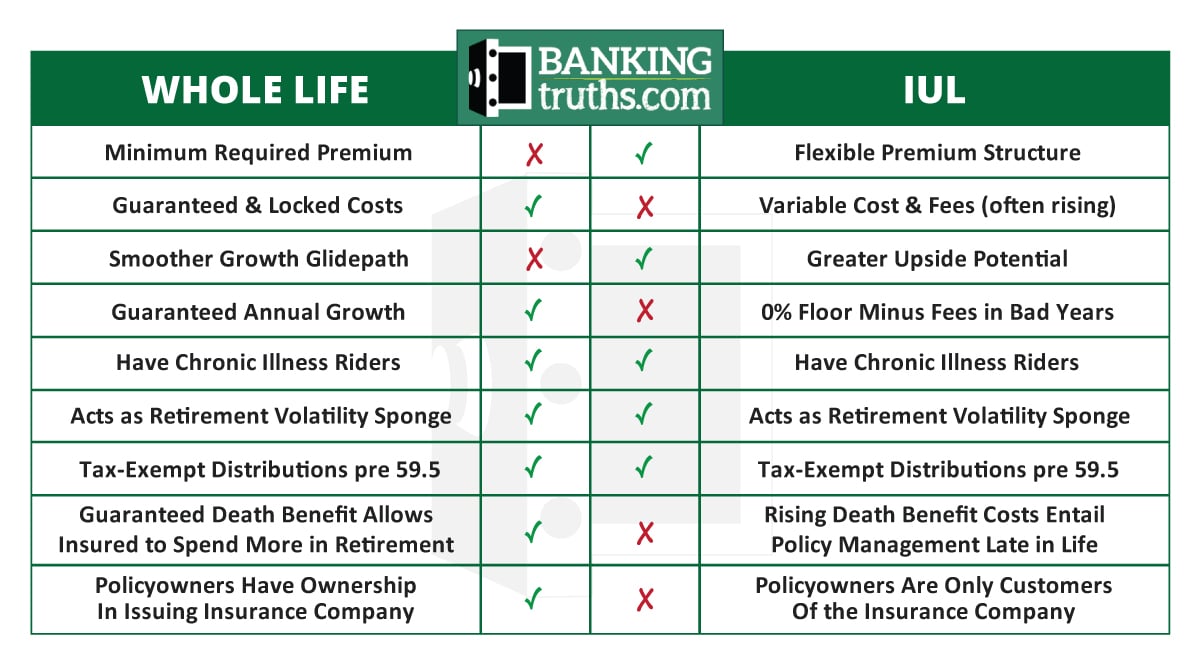All Categories
Featured
Table of Contents
Indexed Universal Life (IUL) insurance coverage is a kind of long-term life insurance plan that combines the features of traditional global life insurance policy with the possibility for cash money worth development connected to the efficiency of a securities market index, such as the S&P 500 (IUL insurance). Like various other kinds of long-term life insurance policy, IUL provides a survivor benefit that pays to the recipients when the insured passes away
Cash worth build-up: A part of the costs payments enters into a cash value account, which gains interest over time. This cash money worth can be accessed or obtained versus throughout the policyholder's life time. Indexing choice: IUL plans provide the chance for cash money value development based upon the efficiency of a stock exchange index.
What types of Indexed Universal Life Growth Strategy are available?
Just like all life insurance policy products, there is likewise a collection of risks that policyholders need to know prior to considering this kind of policy: Market risk: Among the key risks associated with IUL is market threat. Given that the cash worth growth is linked to the performance of a stock exchange index, if the index chokes up, the cash worth may not expand as expected.

Enough liquidity: Insurance holders ought to have a secure economic situation and be comfortable with the superior settlement demands of the IUL plan. IUL enables versatile premium repayments within specific restrictions, but it's important to maintain the plan to guarantee it attains its designated purposes. Passion in life insurance policy protection: People who require life insurance policy protection and an interest in cash value growth might find IUL appealing.
Candidates for IUL need to have the ability to comprehend the auto mechanics of the policy. IUL might not be the very best alternative for individuals with a high tolerance for market danger, those who focus on inexpensive investments, or those with more immediate monetary requirements. Consulting with a certified financial consultant who can offer tailored guidance is crucial prior to considering an IUL policy.
All registrants will certainly obtain a calendar invitation and link to join the webinar via Zoom. Can't make it live? Register anyhow and we'll send you a recording of the presentation the following day.
How much does Iul Investment cost?
You can underpay or avoid premiums, plus you might be able to change your death benefit.
Cash value, along with possible development of that value through an equity index account. An option to designate component of the cash worth to a set interest option.
Insurance holders can determine the percentage alloted to the fixed and indexed accounts. The value of the selected index is tape-recorded at the start of the month and compared to the value at the end of the month. If the index boosts throughout the month, passion is contributed to the cash worth.
The 6% is increased by the cash money value. The resulting interest is added to the money value. Some policies compute the index gains as the sum of the modifications for the period, while other plans take an average of the daily gains for a month. No passion is attributed to the cash account if the index decreases rather than up.
Where can I find Indexed Universal Life?
The rate is established by the insurance provider and can be anywhere from 25% to greater than 100%. (The insurance company can also transform the get involved rate over the lifetime of the policy.) For example, if the gain is 6%, the engagement rate is 50%, and the current cash value total is $10,000, $300 is contributed to the cash money value (6% x 50% x $10,000 = $300).
There are a number of advantages and disadvantages to consider before acquiring an IUL policy.: As with standard global life insurance policy, the insurance holder can increase their premiums or lower them in times of hardship.: Quantities credited to the cash worth grow tax-deferred. The money worth can pay the insurance policy premiums, permitting the insurance holder to lower or quit making out-of-pocket premium settlements.
Iul Premium Options
Several IUL policies have a later maturation day than various other kinds of universal life plans, with some ending when the insured reaches age 121 or even more. If the insured is still to life at that time, policies pay out the death advantage (but not generally the cash worth) and the proceeds may be taxed.

: Smaller sized plan face values don't offer much advantage over regular UL insurance policy policies.: If the index goes down, no rate of interest is attributed to the cash value.
With IUL, the objective is to benefit from upward motions in the index.: Since the insurance provider just buys choices in an index, you're not directly bought stocks, so you do not profit when companies pay dividends to shareholders.: Insurers charge costs for handling your money, which can drain cash worth.
Who are the cheapest Iul Retirement Planning providers?

For many people, no, IUL isn't better than a 401(k) - Indexed Universal Life tax benefits in regards to saving for retirement. Many IULs are best for high-net-worth individuals looking for means to decrease their gross income or those that have maxed out their other retirement options. For everyone else, a 401(k) is a much better financial investment vehicle since it doesn't bring the high costs and costs of an IUL, plus there is no cap on the amount you may earn (unlike with an IUL policy)
While you might not shed any money in the account if the index drops, you won't earn passion. If the marketplace turns favorable, the revenues on your IUL will certainly not be as high as a regular financial investment account. The high price of premiums and costs makes IULs costly and substantially much less inexpensive than term life.
Indexed universal life (IUL) insurance policy provides cash money worth plus a fatality advantage. The cash in the cash value account can gain rate of interest with tracking an equity index, and with some commonly designated to a fixed-rate account. Nonetheless, Indexed universal life plans cap just how much money you can gather (often at less than 100%) and they are based on a potentially unstable equity index.
What is the most popular Guaranteed Iul plan in 2024?
A 401(k) is a far better option for that objective since it doesn't lug the high fees and costs of an IUL policy, plus there is no cap on the amount you might earn when invested. The majority of IUL plans are best for high-net-worth people seeking to decrease their gross income. Investopedia does not supply tax obligation, investment, or monetary solutions and recommendations.
If you're considering buying an indexed universal life policy, very first talk with an economic consultant who can describe the nuances and offer you a precise image of the real possibility of an IUL plan. Ensure you understand exactly how the insurance company will determine your rates of interest, incomes cap, and costs that may be examined.
Latest Posts
Universal Life Insurance Rates
Indexed Universal Life Insurance For Retirement
Whole Life Insurance Vs Indexed Universal Life